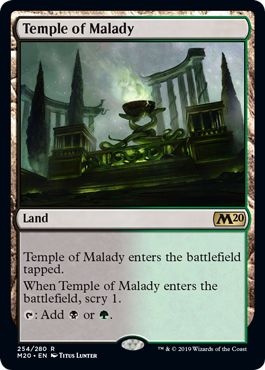Bet On Malady
What was the “thorn” that Paul referred to in 2 Corinthians 12:7?

It gets lonely here sometimes, I bet you know all about that, how it can make you feel like shit. Thanks for being here with me, O'Duffy.' The shimmering blue eyes met his, it was only for a fleeting moment, but he saw the flicker of life dancing within them.
We do not know exactly what the affliction was that Paul called his “thorn in the flesh.” It probably was a physical malady. There is some evidence in Scripture that Paul had an eye problem. He spoke of the large letters he used in writing to the Galatians (Galatians 6:11). The Mind Maggot works good, But teleporting Malady and dropping a Dome, or blocking the stairwell with your tankiest character works well. In addition, if you talk to the Lady Vengence and choose the option to free her, the ship itself will side with you in the fight and grant you and your allies a extremely useful buff that lasts the duration.

We do not know exactly what the affliction was that Paul called his “thorn in the flesh.” It probably was a physical malady. There is some evidence in Scripture that Paul had an eye problem. He spoke of the large letters he used in writing to the Galatians (Galatians 6:11). He also declared that the Galatians would have plucked out their own eyes and given them to him (Galatians 4:13-15). Some have suggested that this may have been a chronic eye disease or an injury suffered when he was stoned in Lystra (Acts 14:19,20).

Basatan Bet On Malady

Paul also referred to his “thorn” as “a messenger of Satan.” We know that the devil afflicted Job with a physical malady (Job 2:7) and caused physical deformity to a woman (Luke 13:16). We therefore have scriptural support for the idea that the “messenger of Satan” can be something physical.
Those who believe that the thorn was something other than a physical affliction point out that it was sent to “buffet” Paul (2 Corinthians 12:7), that is to prick the apostle’s arrogance which may have lingered on after he had been converted from Pharisaism. Some scholars prefer this interpretation and think Paul referred to Alexander the coppersmith (2 Timothy 4:14), Hymenaeus, and Philetus (2 Timothy 2:17), as the “thorns” who were adversaries of the work and therefore doing Satan’s business.
Those who hold to this view also refer to Numbers 33:55, where Moses warned the children of Israel as they were about to enter Canaan, “But if you do not drive out the inhabitants of the land from before you, then it shall be that those whom you let remain shall be irritants in your eyes and thorns in your sides, and they shall harass you in the land where you dwell.”

Another example of such a “thorn” would be Elymas, the sorcerer mentioned in Acts 13, who tried to turn the proconsul, Sergius Paulus, away from the faith (v.8) and was addressed by Paul as “you son of the devil” (v.10). And in 1 Thessalonians 2:18, Satan is said to have prevented Paul more than once from visiting the Thessalonians.
Bet On Malady
The fact of the matter is that the Bible doesn’t identify Paul’s thorn. God must have had a good reason for not giving this information. He probably left it this way so that people with various kinds of physical and spiritual problems might identify with Paul and experience the grace that God has promised (2 Corinthians 12:9).